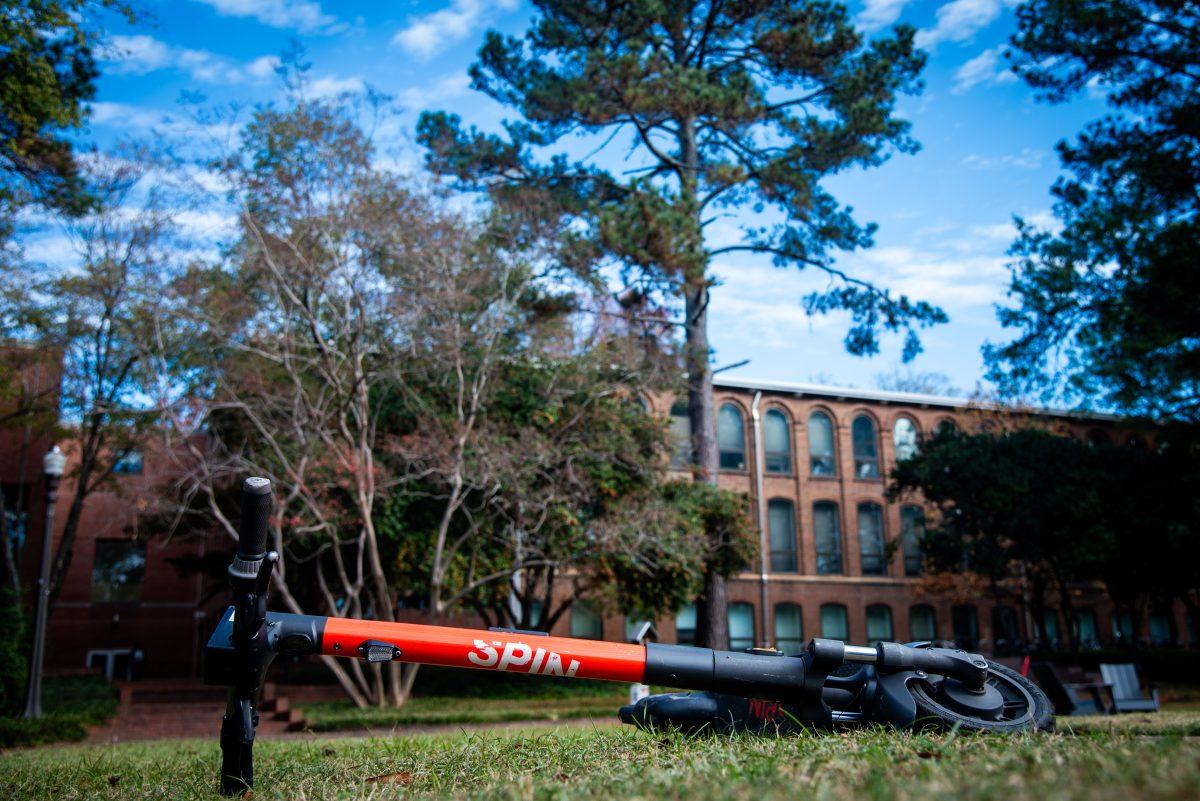Electric scooters have become a common sight on campus, but their presence isn’t without controversy. From blocking curb ramps to reckless sidewalk riding, these concerns are central to a new study by Nicole Odell, a Ph.D. candidate in parks, recreation and tourism management.
Spin, the app-based electric scooter and bike rental company, whose scooters can be seen dotted around campus, funded the study to identify problems and look for possible improvements to the status quo.
Odell gathered responses from both students and faculty, and recognized common issues such as a lack of regulations and norms and a need for segregated infrastructure dedicated to bikes and other micromobility devices.
Odell said three different speed differentials — walking, scooter-riding and driving — has been problematic. It can often lead to users riding on sidewalks at unsafe speeds, mixing with pedestrians. Odell said a common concern raised was that Spin cooters occupy a space in between modes of transport, being not fast enough to ride on roads, but too fast to ride on sidewalks.
Participants pointed to issues with parking the scooters, with complaints ranging from parking blocking sidewalks to curb ramps.
“You can have a nice, accessible ramp that’s not cheap to build,” Odell said. “And then somebody can park a scooter right there.”
The app requires users to take a photo of a vehicle to ensure it is not blocking pedestrian paths. Spin has also added an option in the app for users to report improperly parked scooters to be picked up. Spin employees will move the scooters to different locations to ensure they are available when necessary.
Odell also looked at what modes of transportation Spin was replacing — and found that many on-campus trips replaced walking instead of driving, meaning that the program may replace more active trips.
Amanda Simmons, NC State’s transportation demand management program manager, said various road and micromobility facility improvements have been recommended in the 30-year NC State Transportation Master Plan.
The plan recommends micromobility facility improvements including protected bike lanes on Dan Allen Drive and Cates Avenue and constructing a bike and pedestrian bridge over the railroad tracks between Broughton Hall and Talley Student Center.
Simmons also pointed out that the transportation department has worked with Spin to place notifications in the app encouraging users to park properly and mentioned adding dedicated areas to park the scooters, as opposed to being dockless. Scooter parking spots have been installed on Glenwood Avenue in Raleigh, encouraging users to only end their rides in designated parking.
Demar Bonnemere, communications manager for the transportation department, said the department is working on an educational campaign to encourage people walking, driving, biking and using scooters to traverse through campus to be aware of their surroundings and others.
“It’s an active campus, people are constantly moving,” Bonnemere said. “So just try to educate the entire campus to be more safe as you’re navigating through campus.”
The Spin app also asks users to read various safety messages before using a scooter or bike, encouraging helmet use and obeying traffic laws.
In October, users took 32,076 Spin rides according to the transportation department. Scooters and bikes have become a crucial part of the campus mobility network, pointing to the necessity of proper regulation.
“We feel that it’s a valuable asset to the campus community,” Bonnemere said. “We just want to make sure that everybody’s using it the right way.”













